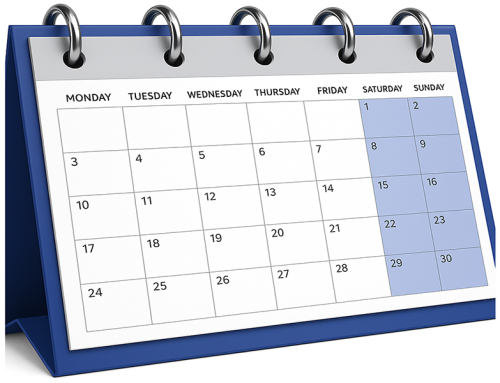I was shocked when I saw these tweets in my feed:
“Exercise is useless for weight loss. But at least it’s good for cardio fitness and health.”
“Exercise is negligible when it comes to fat loss. It’s heartbreaking to see people doing endless cardio with no results.”

Why was I “shocked?” Because both tweets came from fitness coaches (“influencers”) with large followings and I thought they were evidence-based. They should have known these statements were wrong, or half-truths at best.
Instant unfollow from me. I don’t want to hear doom and gloom about how nothing works. “Diets don’t work” some say, and now others swear, “Exercise doesn’t work.”
In random scrolling, I also came across two more tweets:
“Exercise is great for health, worthless for fat loss.”
“Exercise is good for you in many ways, just not for weight loss.”
These two were even more shocking if you consider they were written by medical doctors. Not even an M.D. behind someone’s name guarantees you’re getting the facts. Beware of appealing to authority.
Maybe I shouldn’t have been so taken aback. After all, I’ve been hearing the “cardio is a waste of time” and “exercise doesn’t work for fat loss” rhetoric for decades. One of the most read and most popular posts I ever shared here on Burn the Fat Blog was the one about the Time magazine article back in 2009. It’s still here in the “classic posts” section (and it’s as relevant as ever):
Exercise Won’t Make You Thin? (Why Time Magazine Owes The Fitness Industry A Big Fat Apology)
Here’s what riled me up into a blog writing frenzy this time: Although print magazines are read much less these days, now it’s social media where the “exercise is useless” nonsense is still being spread, and faster and more virally than ever.
These tweets were only the beginning. I soon realized there was a whole new flood of falsity about the role of exercise for weight loss sweeping across Internet.
A lot of otherwise intelligent trainers today have gotten incredibly pessimistic about the role of exercise for weight loss. Even among the well-intentioned, the pendulum has swung too far.
This latest wave of social media exercise misinformation came largely on the heels of one new study.
There’s an increasingly popular new idea that your energy expenditure is “constrained.” It’s also widely believed that you “compensate” for calories you burn. This means that when you exercise more, some of the increase in calories you burned is cancelled out one way or another.
To examine this hypothesis, an analysis of studies using the highly accurate doubly labelled water method was recently published in the scientific journal Clinical Biology (Careau, Pontzer et al 2021). The main finding was that in normal, moderately active people, energy compensation DID happen. The average amount was 28%. It was assumed this came from a drop in BMR.
This is like saying that for every 100 calories you burned through exercise, only 72 of them counted. That would kinda suck if true. On the other hand, even if it is true, it’s not total compensation either so this study doesn’t support the idea that exercise doesn’t help with weight loss. It only shows that the increase in total daily energy expenditure from exercise is not linear, thus producing less fat loss than you expect.
When these results were published, the internet blew up with videos, podcasts, articles, instagrams and tweets like the ones I posted above.
The problem is, lots of people read the internet commentary and took the results of this single study at face value (as if it were definitive proof). That is to say, “A portion of the calories you burn from exercise don’t count because fewer calories are burned somewhere else in your body to compensate.” (This may or may not be true)…
Others took the results and blew them completely out of proportion: “Exercise is useless for weight loss!” (This is absolutely false. Unfollow anyone who says this).
It looks like most social media influencers are better at posting selfies of flexing biceps or barely covered glutes than interpreting research. When digging deeper into the science, we find that there were limitations to this recent study, including that it was observational and doesn’t prove causation.
Most studies that can show cause and effect (randomized controlled trials) say the effect of exercise on BMR is either neutral or even positive (as in the case of lifting weights, which maintains muscle and BMR).
In 2020, a meta-analysis by MacKenzie-Shalders and colleagues systematically reviewed 22 studies, most of them randomized controlled trials, to see what effect exercise had on BMR. What they found was that aerobic training, resistance training, or aerobic plus resistance training either had no effect on BMR or BMR increased slightly.
When aerobic exercise alone was performed, there was no increase in BMR, but no decrease or compensation either. When resistance training was done, BMR increased more than controls. Resistance training usually doesn’t burn as many calories as moderate continuous cardio training. However, it does burn calories and it’s a vital part of an exercise plan if you want to protect muscle and maintain BMR.
Here’s the real potential challenge when you do exercise for weight loss purposes:
There is evidence that some kind of compensation really does happen when exercise is increased. We know this because in many weight loss exercise studies, the actual amount of weight lost doesn’t match what you’d predict based on the amount of exercise done.
The question is why?
There are four plausible reasons for compensation:
1. Increasing exercise eventually leads to a decrease in BMR, just like the new study hypothesizes, so your total daily energy expenditure (TDEE) doesn’t go up as much as you think it does.
2. Increasing exercise may result in a drop in non-exercise activity (NEAT) later. You kill it in the gym in the morning, but then you’re so tired you move less the rest of the day. (Known to happen especially after intense types of exercise and in older individuals).
Exercise For Weight Loss: A NEAT Explanation For Why It Fails
3. When you exercise (and or diet) and lose weight, you have a smaller body than you did before. Smaller bodies burn fewer calories. (So your original calorie math doesn’t work anymore).
4. Increasing exercise leads to an increase in food intake.
How, when, and why compensation to exercise might happen
We know that when you cut calories and drop into a deficit, your body can adapt and reduce your metabolic rate slightly (“metabolic adaptation”). It’s not nearly enough to explain no weight loss at all, but it is enough that the actual amount of weight loss is less than you would predict on paper.
The Latest Science On Metabolic Adaptation: What It Is And What You Can Do About It
Since metabolism can slow down slightly from dieting (cutting calories), it’s not unreasonable to propose that this works in the opposite direction and your metabolism might slow down from exercising (burning calories) too. The body is a very adaptive machine. But again, there’s no evidence that this adaptation is enough to prevent weight loss.
In a 2012 study (Byrne), obese male and female participants went on a very low calorie diet combined with exercise (4 days/wk of walking and 2 days of resistance training). They lost 33% less weight than predicted based on the calorie math. If the subjects had high compliance to the diet, then there was clearly some adaptation or compensation of some kind. In this case, the diet was extreme (only 500 to 600 calories per day) but the exercise was not.
I’m certain that most if not all of the adaptation was due to the severe calorie restriction. And yet, the deficit was so large, they still lost a lot of weight – 18 kg and 15 kg respectively for men and women in only 12 weeks. Metabolic adaptation did not prevent a large weight loss, it only resulted in less weight loss than expected. (There’s no such thing as “starvation mode” if you think it means, “Eating too little makes you stop losing weight.” Ask a famine victim).
If the calorie restriction were more moderate and the exercise were extreme, and if there was metabolic adaptation to the exercise, then I’d wager a year’s worth of protein powder that it too would only reduce the amount of weight lost, not prevent weight loss completely.
The reason I’m writing this is not to suggest that there’s no metabolic adaptation to dieting – there certainly is. Nor am I suggesting that there’s no possible metabolic adaptation to exercise – there probably is. The point of my post is that metabolic adaptation does not stop weight loss, and exercise does work for weight loss.
I wouldn’t dismiss the possibility that future research may causally confirm that increased energy expenditure is compensated for and BMR drops. It seems feasible that when exercise expenditure goes beyond a certain level, and or the increased activity is sustained for a long enough period of time (multiple months probably), other body functions (immunity, reproduction) might go down to conserve energy (that’s what advocates of the constrained energy model suggest).
Energy expenditure might be constrained at some point, but some open questions include, how long would it take for the adaptation to take place, at what level of energy expenditure, at what level of energy intake, at what size deficit, and when both diet and exercise are used, how much metabolic adaptation is from reduced energy intake and how much is from increased energy expenditure? Another question is who would be affected?
Who might see the most compensation?
The Hazda tribe from Tanzania is the population that was studied by evolutionary anthropologist Herman Pontzer, who first proposed the constrained energy model. He wrote about it in a few research papers and in a book called Burn. I don’t find it unbelievable that energy expenditure is constrained in hunter-gatherers. We could even predict that we might see it in full-time athletes burning massive amounts of calories but at the same time consuming an inadequate amount of food.
I can’t recall the paper, but years ago, I remember reading a study which found that people who burn unusually large amounts of calories and consume unusually low calories at the same time have the highest rate of adaptive thermogenesis. Low calories can cause metabolic adaptation. If high energy expenditure can too, that’s a double whammy. People who diet on very low calories and are also inactive (low energy flux) are not using the optimal approach (being sedentary is not healthy), but they don’t see as much metabolic adaptation. Neither do people (athletes) who train with huge calorie expenditures but also eat a lot of food (high energy flux). In both cases, the difference between their intake and expenditure is not extreme.
In contrast, hunter-gatherers and highly active athletes who don’t fuel properly are both examples of energy insufficient individuals. From the evolutionary viewpoint, it seems logical that they might experience adaptation in the form of reduced metabolic activity somewhere in the body. In the case of the Hazda, perhaps adaptations have been passed on for multiple generations, and they’ve become really good compensators. Data does suggest there’s a genetic component to metabolic adaptation.
But these examples seem like exceptions or outliers to me. If we take the average person living in modern Western society who wants to start exercising for fitness and weight control, I doubt we’ll see a sedentary person show any metabolic adaptation to exercise by increasing from something like 4,000 steps a day to 8,000 or 10,000 steps a day with three days a week of lifting. I think we’ll see improved body composition as well as better health. I even doubt we’ll see someone going from moderately active to highly active having their exercise get cancelled out by a drop in BMR if they’re lifting and not starving themselves (reasonable calorie deficit).
The real #1 reason for most compensation: Out-eating your exercise
All the research I can find agrees. The science suggests that number 2, 3, and 4 on my list above are the best explanations for compensation that leads to less than expected weight loss, especially number 4 (increased food intake).
A 6-month randomized controlled trial by Martin and colleagues in 2019 found that subjects in the exercise group lost less weight than expected due to compensation. But the compensation was not metabolic adaptation, it was primarily the result of increased energy intake. (They ate more when they exercised more).
That’s why the recent observational study showing 28% compensation shouldn’t alarm you (and dumb tweets shouldn’t influence you).
The biggest type of calorie compensation to fear is that you could be putting a whole lot of effort into adding exercise, but if you reward yourself with extra food every time you exercise, you could compensate, not just 28%, but even more!
Research suggests that when people eat more in response to exercise, it’s usually not total compensation, but it’s entirely possible that you could do a crap ton of exercise and get ZERO fat loss because you completely wipe out deficit. For short, petite women, one un-budgeted muffin, and POOF, your exercise-induced calorie deficit for the day is gone. That’s another way of confirming the cliche, “You can’t out-train a bad diet.”
You Can’t Out-Train A Bad Diet (But That Doesn’t Mean Exercise For Weight Loss Is Useless)
Most people exercise more, but then feel the urge to eat more, and that’s what cancels out some or all of the calorie deficit, not a drop in BMR.
Exercise and appetite
Upon hearing this, some people say, “Well Tom, if exercise increases appetite, then that’s still a problem and it’s still an argument for why exercise may not be effective isn’t it?”
My response is that it’s not true that exercise always increases physical hunger. That’s another myth that often gets spread by diet gurus and influencers. In fact, the bulk of the research suggests people who exercise regularly have better coupling between their calorie expenditure and calorie intake (better automatic appetite regulation) and therefore maintain their weight better.
Exercise may or may not increase hunger, based on many factors, including the type of exercise, the amount of exercise, individual response (genetics), the size of the calorie deficit, how lean a person is, whether exercise is done fed or fasted and many other factors.
Many people find that exercise blunts their appetite, especially intense exercise like interval training. Many people also say they don’t feel hungry after lifting and that’s one of the reasons they take a post workout protein drink (because they don’t feel like having a full meal yet). Taking a walk is a well-known way to suppress a craving. On the other hand, studies have shown that swimming (especially in cold water) may increase appetite. Some people say long distance running does too.
Yes, some people experience physical hunger when they do a lot of exercise. If you’re in a calorie deficit, increased hunger is normal. But the tendency to eat more after exercising may be more mental than physical.
For one, it may be an error in thinking about calorie math, assuming that you should eat back the calories you burned. That’s one of the worst self-sabotaging mistakes ever. People forget that exercise calories were already counted in their TDEE calculation. Looking at readouts on cardio machines or fitness trackers and then trying to adjust your daily food intake based on calorie burn estimates from individual workouts is an epic failure waiting to happen!
How Tracking Your Workout Calories Burned Can Sabotage Your Fat Loss
Also, psychologists have discovered that “moral licensing” is a problem. This is where people feel that if they do something virtuous (exercise), then their brain tells them that they deserve a reward (a tasty treat).
In the Martin study, one of the most interesting psychological findings was that people who were compensators held a belief that healthy behaviors could make up for unhealthy behaviors. This type of thinking caught them in a trap of allowing poor food choices, then exercising to try making up for it. But it didn’t work. Instead, it explains why the weight loss was so much less than predicted, or there was no loss at all.
This is why, if your goal is weight loss, it’s a counter-productive mindset to think about doing exercise to earn food or doing exercise to make up for “dietary sins.” It would be best to stop asking questions like, “How many minutes on the treadmill to burn off this cheeseburger? This is all the more true because most people don’t burn nearly as many calories as they think. You might be better off focusing on the health benefits of the exercise and how great it makes you feel after doing it, and looking at the boost in weight loss as a nice bonus.
Exercise helps, but more and more is not always the answer
We do have to concede that there are limitations to the use of exercise for weight loss. In my view, it’s not so much because of constraints or compensation, but more because of practical considerations.
One of the reasons so many studies show poor results in exercise interventions for weight loss is simple: not enough exercise is done. Doing 30 minutes of cardio a few days a week isn’t going to put much of a dent in anyone’s calorie deficit or fat stores. Do the math. It’s a pound of fat lost per month, and likely less unless you’re big/tall/heavy and the intensity is moderate or higher.
Here’s another point most people miss: Suppose you do a moderately intense 30 minute jog on the treadmill. When you’re done, the machine says you burned 400 calories. Well, what the machine doesn’t tell you is that is including the calories from your basal metabolism plus the exercise on top. That’s right, even when you’re sleeping you’re burning calories.
If you were just sitting at your desk working during that half hour, or maybe sauntering around the house leisurely, you were still burning calories. Let’s call it, say, 50 to 100. So your actual net (additional) calories burned from the exercise was only 300 to 350. Believe me, I’m not trying to turn you off of exercise (quite the opposite), I’m just being honest/realistic and explaining yet another way that most people burn fewer calories than they think they do. (I TOLD you not to look at those cardio machine calorie readouts!)
Suppose you’ve done the calorie math and you realize that you need a significant amount of training to accumulate a decent calorie burn. If you try scaling up your exercise, you’ll probably find a sustainable sweet spot where the exercise is really helping to speed up the fat loss beyond what you were getting with diet alone.
But as you crank up exercise more and more, you invariably find there’s a point of diminishing returns, or it simply gets harder to sustain because your energy and time are limited. When cardio volume gets really high, the risk of lower NEAT the rest of the day is greater. It can start to negatively impact your lifting due to interference effect too (the horror!)
If you could pull off sustaining a large amount of cardio, it could provide a huge weight loss benefit when added on top of controlled diet. But at some point, a high exercise volume becomes impractical for anyone who is even moderately busy. Ironically the people most likely to sustain high levels of exercise are athletes and serious fitness enthusiasts (who are fit enough to burn a lot of calories), and most of them don’t need to lose fat. I’m fit enough to run for an hour at a nine minute per mile pace, so I know I can burn 800 to 900 calories in that time. But I’m already lean. I also realize not everyone can do that. (Walking it, the calories would be less than half that).
All of these truths become even more evident when you realize to get the same results, you could simply eat half a sub sandwich instead of a whole one, switch a large soda to diet or water, and skip the chips.
Make a note though, that if your calories are already really low, it may not be smart or practical to cut calories more, and exercise is the ideal way to increase your deficit.
Take home message
Increasing exercise can be very helpful for weight loss, but it’s always more efficient to establish a sizable calorie deficit by reducing food intake when you have the room to do so.
This is the main argument for why it’s important to control diet as the first priority for weight loss goals.
That is the proper message that fitness professionals should be sending out, not a bunch of malarky about “exercise for weight loss doesn’t work.”
Add a sustainable amount of cardio exercise (preferably a type you enjoy), plus resistance exercise on top of a well-planned and controlled diet (not exercise alone), and you will see measurably improved fat loss every single time.
Last but not least, let us NEVER forget that exercise does miraculous things for your health. The more you learn about exercise research, the more you’ll want to exercise for the physical and mental health benefits alone.
Tom Venuto
Author, Burn the Fat, Feed the Muscle (BFFM)
Author, The BFFM Guide to Flexible Meal Planning For Fat Loss
Founder, Burn the Fat Inner Circle – The Support Community For No-BS body Transformation
Not A Burn the Fat Inner Circle Member Yet? Learn More And Then Join Us!
PS. What has YOUR experience been like using increased exercise for fat loss? Scroll down and post in the blog comments below, send me an email HERE or post on the Facebook page HERE. Follow me on Instagram HERE. (I don’t twitter much, LOL).

Tom Venuto is a natural bodybuilding and fat loss expert. He is a former competitive bodybuilder and today works as a full-time fitness coach, writer, blogger, and author. In his spare time, he is an avid outdoor enthusiast and backpacker. His book, Burn The Fat, Feed The Muscle is an international bestseller, first as an ebook and now as a hardcover and audiobook. The Body Fat Solution, Tom’s book about emotional eating and long-term weight maintenance, was an Oprah Magazine and Men’s Fitness Magazine pick. Tom is also the founder of Burn The Fat Inner Circle – a fitness support community with over 52,000 members worldwide since 2006. Click here for membership details
Scientific References
Byrne NM et al, Does metabolic compensation explain the majority of less-than-expected weight loss in obese adults during a short-term severe diet and exercise intervention?, International Journal of Obesity, 36, 1472–1478, 2012
Careau V, Pontzer H, et al, Energy compensation and adiposity in humans, Current Biology, 31, pp1-8, October 2021.
MacKenzie-Shalders, et al, The effect of exercise interventions on resting metabolic rate: A systematic review and meta-analysis, Journal of Sports Science,38(14):1635-1649, 2020.
Martin C et al, Effect of different doses of supervised exercise on food intake, metabolism, and non-exercise physical activity: The E-MECHANIC randomized controlled trial, American Journal of Clinical Nutrition, 110(3):583-592, 2019.
Ross R and Janssen I, Physical activity, total and regional obesity: dose-response considerations. Med. Sci. Sports Exerc., Vol.33, No. 6, Suppl., S521–S527, 2001.
Thomas, DM et al, Why do individuals not lose more weight from an exercise intervention at a defined dose? An energy balance analysis, Obes Rev. 13(10): 835–847. 2012
Thomas D, Heymsfield S, Exercise: Is More Always Better? Current Biology Dispatches, R102–R124, 2016.






It seems to me they avoided the idea of BFFM, where the concentration isn’t simply “to lose weight,” but attention is given to gain (or improve quality in) muscle mass as well. Experience alone tells me neither pursuit is linear.
Reaching plateaus is a real thing, as are cheat days and breaking plateaus. Were they monitoring that aspect of the puzzle in their tests and data collection?
If it was easy, everyone would be able to do it at will. If it was all a natural process to achieve a great bod, everyone would be in great shape. In this day and age, few things we regard as natural (lifestyles, food purity, work demands) result in the natural outcome of, say, a life on a farm, or as a combat practitioner.
Even if their compensation estimates were accurate, it is no more than one more aspect of the journey to the end goal. It’s like flying with a headwind, or having to tack a sail boat to gain a specific destination.
Doesn’t mean you shouldn’t fly, or sail.
In the case of sailing, the wind is a necessity.